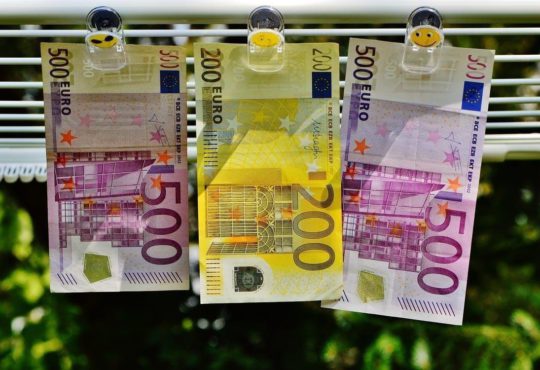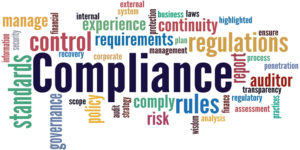The General Inspector of Financial Information ("GIIF") has published a report on the implementation of the Anti-Money Laundering and Countering the Financing of Terrorism Law of March 1, 2018 in 2021 ("AML" / "CTF").
As in the 2 previous years, this document does not contain much information in terms of the factoring industry. The concept of factoring itself only appears in the following two passages:
- According to CSO data included in the quarterly information on national economy entities, as of December 31, 2021, there were a total of 8,876 (compared to 9,034 in 2020) entities registered in the National Official Register of the National Economy REGON (excluding individuals operating only individual farms), indicating activity within the scope defined by the PKD code - 64.99Z, i.e. other financial service activities, not elsewhere classified, excluding insurance and pension funds (This subclass includes, among other activities, the following. factoring);
- Financial institutions that are not other obligated institutions designated in the AML/CTF Act should be considered companies factoring, leasing (in the field of financial leasing), and entities whose core business is "advising business enterprises on capital structure, industrial strategy and related issues, as well as consulting and services for mergers and acquisitions of business enterprises."
Other issues worth mentioning (in general):
- In 2021, 3852 descriptive notifications of suspicious activities and transactions, so-called SARs, were registered in the GIIF's computer system.
- In 2021. The GIIF received information on 36.67 million so-called suprathreshold transactions.
- The GIIF initiated in 2021. - based on the information received - 2,447 analytical proceedings.
- Transmitting 519 notices of suspected money laundering offenses (so-called master notices) to the relevant local prosecutors - an increase of about 37.3%.
- The GIIF carried out 1,426 blockades of accounts.
- In 2021, the GIIF directed the largest number of notifications on its own initiative to the National Tax Administration authorities (mainly so-called tax carousels and empty invoices).
- Signalmen. The GIIF provides the ability to receive reports from whistleblowers (whistleblowing) at an email address -. sygnaliści.GIIF@mf.gov.pl Or in paper form. Based on 80 information / submissions (mainly electronic), which were received by the GIIF in 2021, were established in the ongoing register of social signals 54 issues.
- Checks:
- Under the provisions of the AML/CTF Act in 2021. The GIIF conducted 9 inspections, including 3 at banks and 5 at non-bank financial institutions.
- The post-inspection recommendations were extensive and listed a large number of deficiencies.
- The GIIF sent 1 notice of suspicion to the prosecutor's office on suspicion of an offense under Article 156(1) of the AML/CTF Law.
- In 2021. The GIIF initiated 23 administrative proceedings. In the case of 10 proceedings, their initiation was due to irregularities found as a result of GIIF inspections.
- In 2021. The GIIF completed 16 proceedings by issuing administrative decisions imposing administrative penalties on obliged institutions in the form of fines.
- In 2021, 300 AML prosecutions in district and county courts in Poland.
- It is worth noting that the FATF has continued to work on modifying its guidelines for a risk-based approach to virtual assets (virtual assets) and virtual asset service providers (VASPs).
- Cross-border reports from Netherlands, account for more than 80% of all foreign information, and concern unusual transactions that have a potential connection to Poland. The information provided mostly covers single transactions, which affects the significant number of reports received, although the scale of inquiries for this Country is surprising.
- In connection with its analytical cases, the GIIF cooperated most often with JAFs from Germany, Lithuania, Ukraine, France and Spain. This shows the directions of potential money laundering among European countries and the direction of current schemes.
- On 19.04.2021. The Council of Ministers adopted Resolution No. 50 on the adoption of an anti-money laundering and counter-terrorist financing strategy.
- Interesting money laundering schemes described:
- Transfers of funds from VAT accounts. The case involved the deliberate use of split payment settlement irregularities. Payments were not linked to actual purchase transactions, and were therefore treated as erroneous by the national payment institution system. Due to the malfunctioning algorithm in MPP, the funds were then returned to the settlement account. This resulted in the release of funds legally provided for securing the payment of VAT, thereby acting to the detriment of the Treasury. Subsequently, the funds thus obtained, the source of which was, among other things, the VAT account, were transferred to another entity for further disposition. That is, the VAT account funds were effectively embezzled and disposed of in violation of the law.
- Money laundering through the purchase of real estate. The probable purpose of the transfer to Poland of the amount of about EUR 130 million was to conceal the criminal origin of the funds, then to legalize these funds through a transaction for the purchase of an attractive property intended for a very large investment. Continued activity by subsidiary companies may generate money laundering risks in the future (through the lease of existing commercial space and through planned development investments).
- Money laundering by non-residents using target companies. The bank identified a suspicious flow of funds from one entity (company X) from a Northern European country to the accounts of two Polish companies (A and B) registered only about 1-2 months earlier. Funds flowing into the accounts of the Polish entities were transferred to the personal accounts of several individuals originating from one of the Baltic countries, and then withdrawn at ATMs in Scandinavia and the Baltic countries. Withdrawals from different personal accounts were made on the same days, which makes it possible to suspect that they may have been carried out by the same person holding the payment cards. In addition, the persons withdrawing the funds opened bank accounts at the same branch of the Bank, within the same two business days. The owners of the two Polish entities (i.e., Companies B and C) probably knew each other, as they came from the same small town. Moreover, they declared relatively small incomes for the last years preceding the establishment of their companies.






